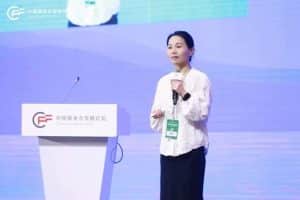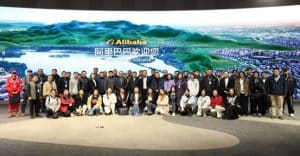“Poverty is when you look at what you want to buy, eat, and accomplish – but you can’t afford to. It means that you can only stand still and watch others achieve their goals. Even if I work hard, it may still take me 20 years to get to where others are. That’s so unfair,” said Xu Yang (pseudonym), a 21-year-old college student who is part of a poverty alleviation program.
The “Yuruyucheng (Chinese meaning: the nurse of greatness) College Student Workplace Elite Incubation Program”, operated by Danyang (a county-level city in Jiangsu Province) Yuruyucheng Student Aid Association and Danyang Yuruyucheng Philanthropic Foundation, provides financial aid and other support to college students in poverty.
Xu started receiving financial help from the student aid association before the college program while in the first semester of high school, when he was just 14 years old. His mother had died of cancer the year before, and his father, aged 65, could only do odd jobs. When the head teacher approached him and said he would be granted help to attend school, he was skeptical.
He gradually began to understand what student aid would actually be after a series of survey visits and pairing ceremonies. He was eventually paired with sponsors and started to receive regular grants, and became engaged in various student activities. His father also passed away at the end of last year.
In Danyang, there are many children and teenagers like Xu who grow up in poverty and distress.
Accurately identify students’ needs
Danyang Yuruyucheng Philanthropic Foundation collects information on students with difficulties from schools, communities, and individuals.
“Many schools decide whether to fund a student based purely on information provided by the village committee or community certificates, without actual home visits by teachers,” said Yun Rucheng, founder of the student aid association and director general of the foundation. He feels that this can be an inaccurate method of gathering information.
“On the one hand, many students in difficulty are unwilling to provide proof of eligibility or submit student aid applications due to shame or reasons of self-esteem. On the other hand, I have seen student aid granted to many students who live above the social average and are not poor at all,” Yun told China Times reporters.
According to Yun, student aid must be “accurate”, and a thorough background check is needed before subsidizing students in poverty. So the first step is to screen and identify students who really need financial support.
To this end, he set up three criteria for selecting students for Yuruyucheng projects: living in poverty, sensible, and traceable for feedback. Students who meet these three conditions at the same time and who have not yet accepted long-term funding from other NGOs or individuals in Danyang can obtain funding.
Financial aid system
Yuruyucheng association has established a complete financial aid system. To begin with, sponsors provide basic financial aid to children or teenagers on a one-to-one or group basis every semester so that they can go to school.
Moreover, they also cooperate with local businesses to set up additional scholarship systems, as well as multiple awards to further stimulate the internal motivation of the sponsored students.
“Students we fund generally lack one or two parents. They are generally shy and have a sense of social inferiority, and some even need psychological help,” Yun explained. “How to provide them spiritual support and guidance is sometimes more important — but it is more difficult to achieve than giving them financial aid.”
Aiming at some of the common problems facing the students, the association held student activities during holidays including lectures and online courses, tours to attractions and college campuses, as well as speech contests.
In addition, by establishing contact with the Danyang Psychological Association, Yuruyucheng brought psychology teachers to counsel students with mental health problems.
At the same time, with the aim of helping students in poverty enter the workplace, in 2020, Yuruyucheng launched the College Student Workplace Elite Incubation project to help participants develop a clear academic and career plan, while also taking students on visits to local firms to learn about their operations and corporate culture.
Outcomes and room for improvement
By the end of June, Yuruyucheng’s programs had paired and subsidized 626 students in poverty. The programs accumulatively distributed materials, grants, scholarships, and condolence payments worth more than 10 million yuan ($1.4 million) and hosted over 100 events and activities, such as summer camps, counseling and public speaking training, which directly or indirectly benefited more than 2,600 students.
“Yuruyucheng made me aware that I should not feel inferior just because I’m poor,” Xu told China Times. “But I do wish that we as recipients could talk to our sponsors more, and I hope the foundation could provide students with some emotional support.”
“Also, I hope that those of us who receive financial aid can also strengthen our connection with the foundation,” he said, expressing his willingness to do some volunteer work for activities related to the foundation’s own development, such as launching campaigns via Tencent’s “99 Giving Day”.



